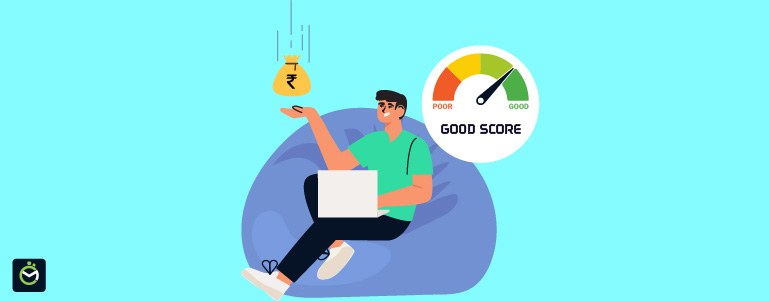Responsibly managing personal finances is always a challenging task, especially consistently month in and month out. Even a few small mistakes can have larger negative consequences on our finances. For instance, we may splurge on certain goods that are being offered on sale without thinking of how it will reduce our bank balance. Another example is missing out on paying our credit card bills on time and ending up paying late fees which could be easily avoided.
Many such financial mistakes can have significant consequences on our financial health and subsequently on credit scores. These are best avoided since they can add up and cause substantial damage to our ability to access affordable credit when we need a personal loan or a new credit card. A lower credit score closes the doors to qualifying for and getting reasonable interest rates in the future.
Here are 4 common financial mistakes that any individual must avoid while walking the path of a good credit score.
- High credit card balances
One of the most important rules to remember while working towards a good credit score is to maintain a low credit utilization ratio. Credit utilisation ratio calculated as total outstanding credit card balance as a percentage of the total credit limit. This gives us the percentage of total credit being used. A few points to remember here are:
- The higher the credit card balance, the higher the credit utilisation ratio.
- It is best to avoid excessive credit card balances.
- The lower the credit card balance as compared to available credit limits, the better it is for credit score.
- Always pay the credit card balance in full each month.
A credit card user should always strive to maintain credit balances under 30% of the total available credit limit. While any balance may impact credit scores, what is harmful is crossing the 30% threshold which results in a significant drop in credit scores. Those who use large balances from their credit cards every month may be hurting their credit scores even if they make timely payments on the cards.
Additional reads- What is a Good Credit Score and Tips to Maintain It
- Defaulting on credit accounts
Many credit card users tend to make late payments either because they miss the payment date or because they do not realise the significance of making timely credit card payments. Late payments can negatively impact credit scores. A credit card payment history makes for more than a third (35%) of the credit score calculation matrix.
Missing multiple payments may result in the lender declaring the account as default. This can cause serious damage and in turn, take years for credit score revival. A defaulted account can reflect on a credit report in multiple ways, including, repossession, foreclosure, bankruptcy, settled accounts, etc. Each can severely damage your credit for years or even decades.
People who are unable to remember their credit due dates should automate their bill payments. This way, your money gets automatically deducted from your account each month and on the due date, ensuring that your bill is paid on time. In case one cannot afford to pay the full amount due, paying the minimum can ensure a good credit standing.
- Frequently applying for new credit accounts
Oftentimes, credit card users get tempted to apply for new credit depending on what offers are being rolled out and in the hope to make the most of available credit in the market. However, one golden rule that every credit user should play by is to only apply for new credit when needed and knowing the repayment capability beforehand.
Applying for multiple different credit accounts within a short span indicates a risk to banks and lenders. Every credit application means a hard inquiry on one’s credit report and this can hamper your score. A hard inquiry means a lender is requesting your credit report to verify creditworthiness against your application.
Borrowing unnecessary credit can also result in overspending and accumulating too much debt in a short span. Therefore, always ensure to feel comfortable about adding additional credit before signing up for another card.
Recommended read – 5 Important Tips To Improve Your Credit Health
- Impulse buying
A financial mistake that many of us often make, without even realising is not having a budget. A budget can control our spending and keep it in check. It acts as a guide towards long term financial planning.
Today, many apps can help us plan our budget and even customise it as per our liking. Whether we go the old-fashioned budgeting way or use an online app, what’s critical is to have a plan. Buying a new car, revamping our wardrobe or going on a foreign vacation, all require us to save and be financially prepared. A budget can help us achieve our long-term financial goals. Therefore, while treading the path of achieving a good credit score, it makes sense to use a budget.
Conclusion
Having a good credit score is very important to get new credit and many of us take efforts in managing our scores along our credit journey. However, we also make mistakes on the way and these can negatively impact our credit score. By avoiding the above-mentioned financial mistakes, we can take charge of our credit scores and avail the benefits of reasonable credit at all times.
